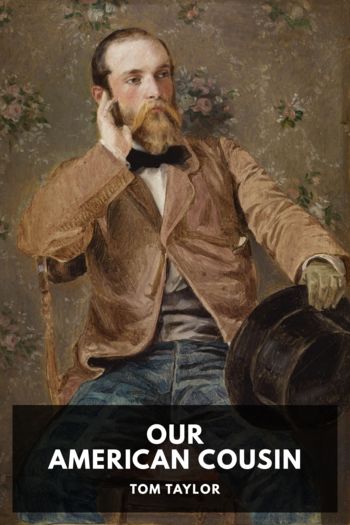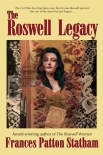Daughters of the Summer Storm, Frances Statham [classic reads txt] 📗

- Author: Frances Statham
Book online «Daughters of the Summer Storm, Frances Statham [classic reads txt] 📗». Author Frances Statham
So, on the next day, Ruis left the city with a fragile and subdued Maranta, and his penniless cousin, Dona Isobel, who had suddenly aged overnight.
Through the long hours of riding in the canoe, Maranta relived the nightmare in the suffocating vault—the spiders crawling over her in the darkness, and her search for some place off the floor where she might avoid them. And then, finally, that feeling of lethargy that came over her body at the lack of air, causing her to rest full-length upon the slab that was reserved for the dead.
She could not comprehend her situation when she first became aware of the man's, mouth upon hers, drawing her back to life, making her lungs hurt at the forced in-take of breath. Then she had opened her eyes to see Ruis—his dark head bending over her, possessing her with those dark sapphire eyes—the man who had rescued her from death.
The canoe hit rough water, and Maranta gasped. "You are all right, amada?" Ruis called softly, shifting his body slightly to the side to accommodate the dip of the canoe.
"Sim, Ruis," she answered, and at her use of the Portuguese word instead of English, the man smiled and then faced ahead.
Once more, Maranta stared at the back of the arrogant conde. But she felt no antagonism at his blocking out her view. She felt comfort in his closeness instead—protection, by this man who had gone to great lengths to remove her from any further danger presented by Innocencia's brothers.
Honório—that was one of the names Vasco had given to little Paulo. And Ruis had said nothing in answer to Vasco's maliciousness in naming Ruis's own son after a man Ruis despised.
Sensing that Maranta was uneasy each time he disappeared from her sight, Ruis took care to keep her at his side as much as possible. But it was not difficult. Maranta made no more excursions to the riverbank on her own; she made no demur at Ruis's suggestions along the way. Puzzled over this new docility, Ruis, chided himself for not watching over her more closely in São Paulo.
"What are you thinking about, pequena?" he asked one night in a soft tone. The glow of the cooking fire burned low, framing her small serious face in its waning light. At his question, she looked up with a guilty expression.
"I was thinking of Paulo—and wondering if he is well."
"By this time tomorrow, Maranta, you will be able to judge for yourself when you see him."
"We are that close?"
"Yes. Only a few miles more and we will be on Monteiro property."
She slept better that night in the tent, by Dona Isobel's side—knowing that the child she thought never to see again would soon be in her arms.
The rain began that evening and continued through the next day, slowing them down. Each mile, each small delay filled Maranta with impatience. But then, the town of Hitû rose before them. Only a few miles more.
There was no palanquin available in Hitû. Dona Isobel decided to wait for transportation from the fazenda, with some of the servants to keep her company, but Maranta chose to ride the mare that Ruis had brought back with him from São Paulo—the same horse she had ridden to Penha, the shrine in the hills where she had once prayed for a miracle.
Over the terra-roxa the mare trotted, alongside Diabo. And behind them came two of Ruis's armed servants. Over the green hills they rode, with Maranta marking off every familiar point, every obstacle that separated her from her child, until in the distance, the fertile slopes dotted with coffee plants rose before her.
She met Ruis's gaze and smiled at him, the tension easing from her body. For the first time since they'd left the city of São Paulo, Maranta felt safe.
In the stables, Vasco waited for Patû to strap him to the horse. When that was done, the man spoke quietly to the servant.
"Bring the child to me, Patû. I shall wait here inside the stables. But make sure no one sees you take the babe from the nursery."
The Indian left the stables to obey, and Vasco waited, patting the horse and soothing him as he snorted and sidled nervously, eager for his daily gallop.
To perfect his game, Vasco had taken the horse daily to the falls and pitched a bundle into the river. Each day for a week he had watched the bright bundle disappear over the falls.
But today would be different. This time, there would be no bundle of clothes floating over the precipice. A much more valuable piece—at least to Ruis—would go over the falls.
Vasco could imagine the great cry when it was discovered that the child had disappeared with no trace. Kidnappers, stealing the child from the nursery. That's what they would probably think—with Naka and Sassia blamed for their negligence. He could see Ruis searching the countryside for weeks, with no reward for his effort, unless—Yes. He just might leave one of the child's shoes where it could be found. That would be interesting to watch.
Vasco laughed. The pleasure in planning was tantamount to that of the deed. How long he had lain awake at night, planning and plotting—ever since hearing Floresta's taunting words. And now it was time to fulfill the scheme. His brother would be home in a few days.
Impatiently, Vasco waited for Patû to return. What was keeping him?
The Indian, with the baby wrapped in a white blanket, looked back toward the house and then quickly slipped across the open space to the stable door.
"What kept you so long?" an irritable Vasco asked the Indian.
"The child was fretful and would not go to sleep for a time."
"Probably cutting another tooth," Vasco said. "Well, hand him to me."
He stared down at the sleeping child, his blue-black hair in small ringlets about his head, and his dark eyelashes long against his baby cheeks. "He could so easily have been mine," Vasco whispered. And then he thought of Ruis. The small





Comments (0)